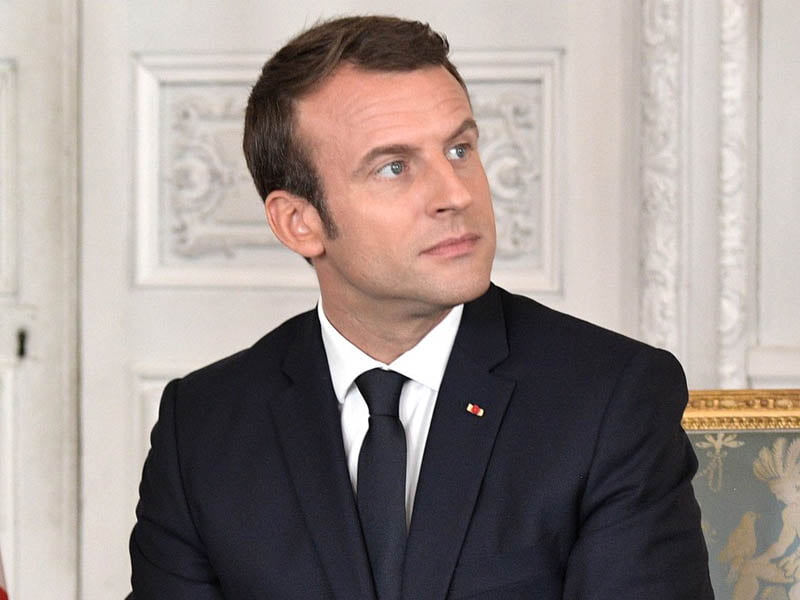Australia is on the horns of an artificial intelligence dilemma just like the rest of the planet. But while our business leaders have begun to turn their attention to AI and how it might be applied, the broader political conversation about AI’s economic and security impact is low frequency and low volume.
In the face of the massive development efforts in artificial intelligence and machine learning by research giants like the United States, China and Russia, what’s a middle power to do? How are we to direct the policy conversation?
Because doing nothing is not an option. The race has already begun. Building the nation’s AI and machine learning capability is as fundamental to our economic and physical security as maintaining a world-class, frontline cyber capability.

This is the thinking in France, where President Emmanuel Macro last week committed euro1.5 billion ($2.4 billion) of public funding into artificial intelligence by 2022.
While this might be considered small beer compared to the geo-political giants – to say nothing of platforms like Facebook, Google, Amazon, Alibaba, Tencent and the rest – it signals the shift in strategic thinking.
That is, that doing nothing – or doing little – is no longer an option. You might hope Australians are watching.
Macron’s investment is part of an AI, machine learning and data strategy laid out by celebrated mathematician Cedric Villani (who is also a member of the French parliament and on the Macron economic team).
The strategy effectively builds AI as a central economic pillar, and Macron’s taxpayer investment is the commitment to that pillar. It aims to help stem the French brain drain to Silicon Valley of top mathematical and computer science talent by building public and private opportunities.
But mainly it recognises the fundamental impact of AI and machine learning. It is about building capability and capacity as a strategic economic and national security imperative.
“There is no chance of controlling any effects (of these technologies) or having a say on any adverse effect if we’ve missed the start of the war,” President Macron said in announcing the funding commitment.
That’s a fascinating statement of truth.
Australia does not have a Cedric Villani equivalent in the parliament, which is a great pity (Villani is a Fields Medal winner, and has been described as the Lady Gaga of Mathematics, so that’s both productive and fun). And while Australia has many of the policy equivalents as those described by Villani’s French strategy, it is missing the central political weight of the highest political office.
Talk to virtually anyone in the tech startup and innovation sectors and they’ll say increased investment and strategic thinking on artificial intelligence is a no-brainer. But its disruptive impact across society – not least on jobs – make it politically divisive.
It will take top down political leadership to shift the needle as Macron’s commitments will sure attest.
The CSIRO’s Data61 chief executive Adrian Turner is an optimist in these areas. From a research perspective, it is early days and Australia has specific and world class expertise to offer. It is worth noting that Data61 has had AI and machine learning research as key focus since the day it was founded.
It is no surprise that Mr Turner does not provide commentary on government policy, given his leadership role in a publicly funded institution. But he obviously has strong views on the research subjects.
“What the French government is recognising is that AI has the potential to reform the basis of competition and to lead to entirely new industries being created,” he said.
In addition to new and different jobs being created, AI capability was becoming “fundamental to the national security of the nation – and that’s across cyber security, border security, food security.”
“And I think [The French] also recognise that AI also has the potential to dramatically improve quality of life.” He cites the creation of higher order, less mundane jobs, personalised health and wellness products and services, personalised nutrition, improved transportation systems and more liveable cities as examples of the diversity of AI research outcomes.
It is the breadth of the impact of artificial intelligence across the economic and national security that must drive the research imperative.
“AI is not unlike cyber security, in that it is an area where you need a sovereign capability,” Mr Turner said.
An Australian research capability in AI and machine learning gives Australia a seat at the table in influencing its development and application. Although a small player in gross terms, Australia has nonetheless got some research game – and that has flow-on effects for Australian business and the rest of the economy.
Do you know more? Contact James Riley via Email.

